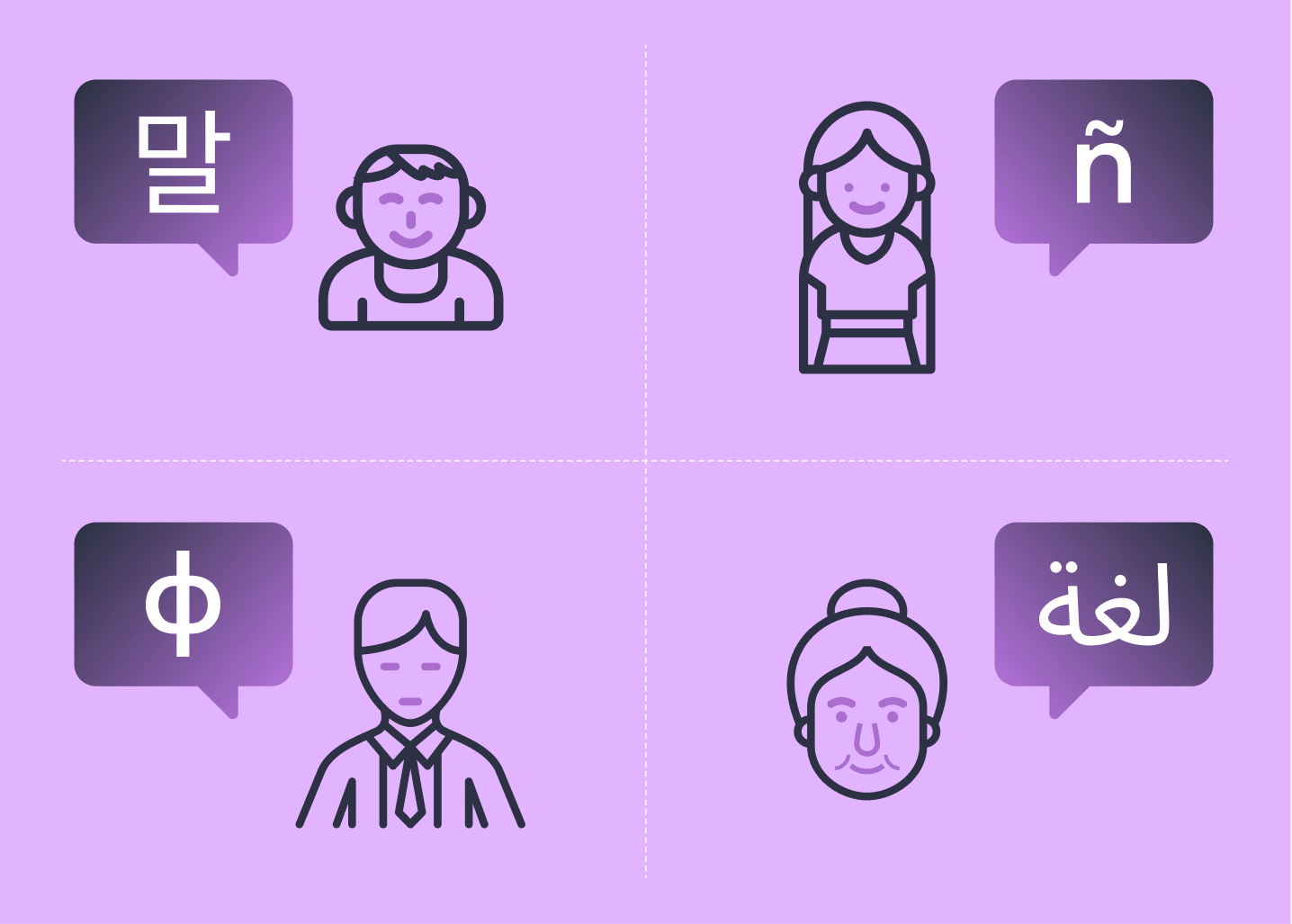The Short Answer: It depends on your sleep schedule and the intensity of mental input throughout the day. If your circadian rhythm is roughly synchronized with the sun and you make it through each day without being overloaded with information, an effective way to learn vocabulary is probably with two 30-minute study sessions per day around 11:00 a.m. and 9:00 p.m.
Now for the caveats:
Everyone Is Different
When it comes to factors that affect individual cognitive performance, it’s difficult to generalize. We know with some confidence that getting sufficient sleep, a little exercise, and good nutrition have a noticeable impact on most people.1 Research that looks at other details has been harder to replicate.
Then there’s the question of why certain times of day seem to be better. It could be that the most important factors are not obvious – for example, perhaps whatever time of day is quietest is best, or whenever we receive the fewest notifications on our phones.
It’s also useless to suggest a particular study time to a learner with a job or other obligations that demand their attention at that same moment. Conversely, a time like 9:00 p.m. might see many people exhausted at the end of a long workday, in which case memory formation is probably not optimal.
For learners with attention challenges, a 30-minute session might be too long, while older people might actually retain more by studying for longer but at a more leisurely pace.
Many cognitive scientists agree that we have some kind of maximum daily capacity for absorbing new information. So, in the case of students juggling a language with other subjects, it may be that one set of vocabulary cards per day is enough to bring them to the point of diminishing returns.

Photo by Diva Plavalaguna
Most People Are Not in Tune With the Sun
A general rule of thumb is that the first cognitive peak of the day occurs a couple of hours after getting out of bed and starting to move around.2
For early risers who like to go for a walk first thing, that peak probably takes place long before 11:00 a.m. Some individuals say they can think very lucidly or even creatively at dawn, within minutes of waking up. A consistent routine, mindfulness, and self-observation all seem to unlock possibilities and make the optimal times to take on demanding activities more apparent.
However, not everyone gets a consistent sleep schedule, especially not one synchronized with the sun. Unfortunately, it’s probably not as simple as delaying the optimal study times by a few hours to fit in with a 10:00 a.m. to 3:00 a.m. cycle; instead, you have to pay attention to your circadian rhythm and try to pinpoint those beginning-of-day and end-of-day spikes in mental energy.
Identifying and making good use of that evening boost isn’t always easy, especially not for young people, who tend to be bombarded with distractions and intense inputs just before they go to bed. For determined language learners, a good step might be to impose a strict regimen and avoid all social media in those last few hours and the first few after waking up.
In any case, it takes a bit of discipline to notice a surge of energy and immediately decide to spend it on studying, amid myriad other possibilities.
The Best Time to Do Anything Is When You Feel Motivated
Forcing yourself to study is one of the least efficient ways you can use your brain.3
Thus, keeping a strict study schedule isn’t usually such a good idea for most people. However, a healthy lifestyle and a consistent daily routine makes it much more likely that those peaks in energy also correspond with peaks in focus and motivation. And if you study at the same time every day for a long time, the habit will become naturally ingrained.
If you’re struggling to find the motivation to learn, the most valuable thing to do might be to contemplate why you started in the first place. You might also try visualizing a future where you’ve achieved a high level of proficiency in your target language, imagine the experiences and sensations that might accompany that, and consider that it’s within your power to bring such a future about.
Another approach is to use low–intensity study sessions. This is where spaced repetition shines,4 and Lingvist in particular can help you squeeze utility out of those low tides in alertness.

Photo by Christina Morillo
We Don’t Really Learn Languages Just by Studying
Science suggests that picking up a language is even more neurologically complex than studying philosophy or advanced mathematics.5
The parts of the brain we use to make sense of logical concepts and arrange information do have a role to play in learning languages, but we also use some of the parts that help us dance, play music, and interpret people’s emotions.
That proposal to study for two 30-minute sessions around 11:00 a.m. and 9:00 p.m. is based on a theory of peak cognitive performance. Certain activities, like reviewing conjugation charts, may be much more effective at such moments. Others, like socializing or watching movies in your target language, might not.
Doing something at the same time almost every day is a reliable way to build a habit, but it’s also a good idea to supplement your structured learning with spontaneous speaking and listening opportunities.

Learn new languages smarter and faster
The Research Is Not Conclusive
In addition to individual variation and task variation, there are countless other factors that are difficult to isolate for investigation.
While there is broad agreement on the existence of a daytime cognitive peak, some studies have placed the average time for this earlier in the morning. It’s also not clear that this peak in performance is important for language learning, compared to other factors like mood and environment.
Likewise, the theory that we can more effectively memorize patterns a few hours before bed also enjoys popular consensus. But how effective is rote memorization for learning languages? This question is more contentious.
What is inescapable is that a learner needs to acquire some vocabulary to be able to apply it in more complex reading, listening, and speaking activities.6 Encountering these words in their proper context helps the learner get an intuitive handle on grammar and syntax, and these processes have a lot in common with the core cognitive competences that science is most familiar with.
In other words, although we’re all different and we can’t systemize every operation involved in learning a language, a regular routine of short, focused study sessions is a great springboard.
If you can identify your own optimal times to do those sessions, all the better. But if you want a nice starting point that works for most people, try a session at 11:00 am and another at 9:00 pm each day. That way you’re likely to hit your morning cognitive peak just after the cortisol wears off, and get a nice bonus to sleep-based memory formation before the melatonin kicks in!
— Meeusen, Romain. 2014. “Exercise, Nutrition and the Brain.” Sports Medicine. Springer Science and Business Media LLC. https://doi.org/10.1007/s40279-014-0150-5. | Full Text Link ↩︎ Evans, M. D. R., Paul Kelley, and Jonathan Kelley. 2017. “Identifying the Best Times for Cognitive Functioning Using New Methods: Matching University Times to Undergraduate Chronotypes.” Frontiers in Human Neuroscience. Frontiers Media SA. https://doi.org/10.3389/fnhum.2017.00188. | Full Text Link ↩︎ Boekaerts, Monique. 2007. “What Have We Learned About the Link Between Motivation and Learning/Performance?” Zeitschrift für Pädagogische Psychologie. Hogrefe Publishing Group. https://doi.org/10.1024/1010-0652.21.3.263. ↩︎ Kang, Sean H. K. 2016. “Spaced Repetition Promotes Efficient and Effective Learning.” Policy Insights from the Behavioral and Brain Sciences. SAGE Publications. https://doi.org/10.1177/2372732215624708. ↩︎ Swain, Merrill. 2011. “The Inseparability of Cognition and Emotion in Second Language Learning.” Language Teaching. Cambridge University Press (CUP). https://doi.org/10.1017/s0261444811000486. ↩︎ AlQahtani, Mofareh. 2015. “The Importance of Vocabulary in Language Learning and How to Be Taught.” International Journal of Teaching and Education. International Institute of Social and Economic Sciences. https://doi.org/10.20472/te.2015.3.3.002. ↩︎




